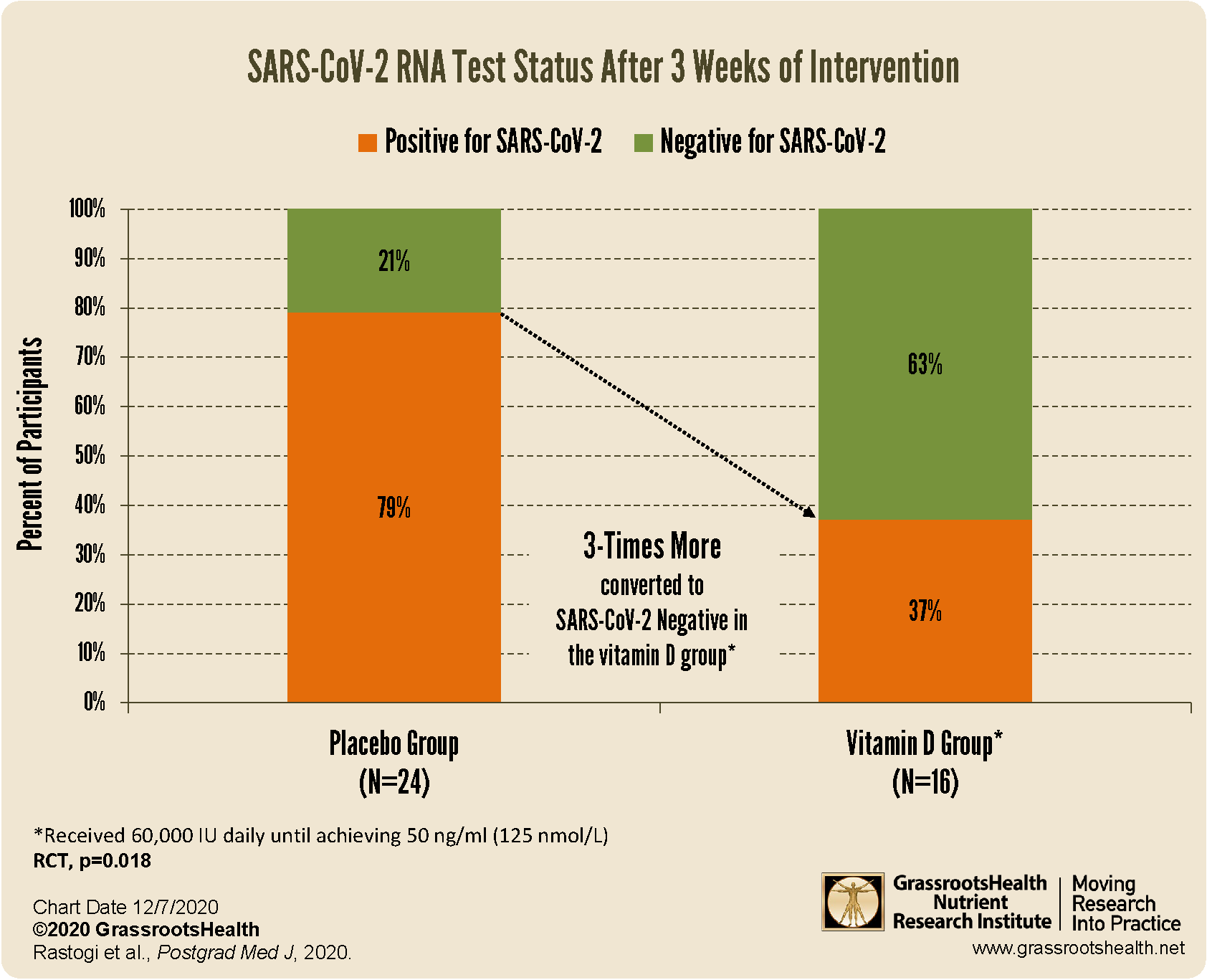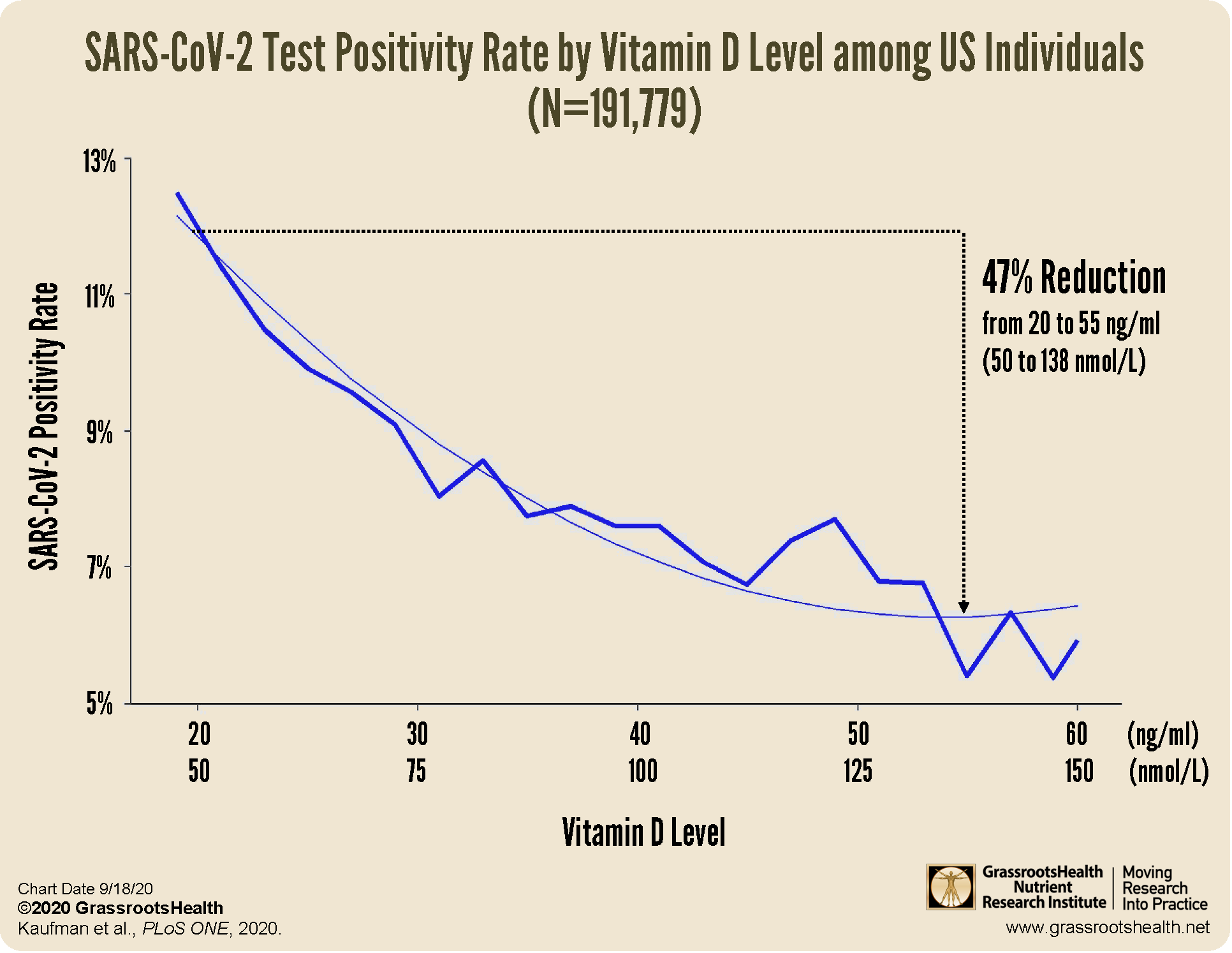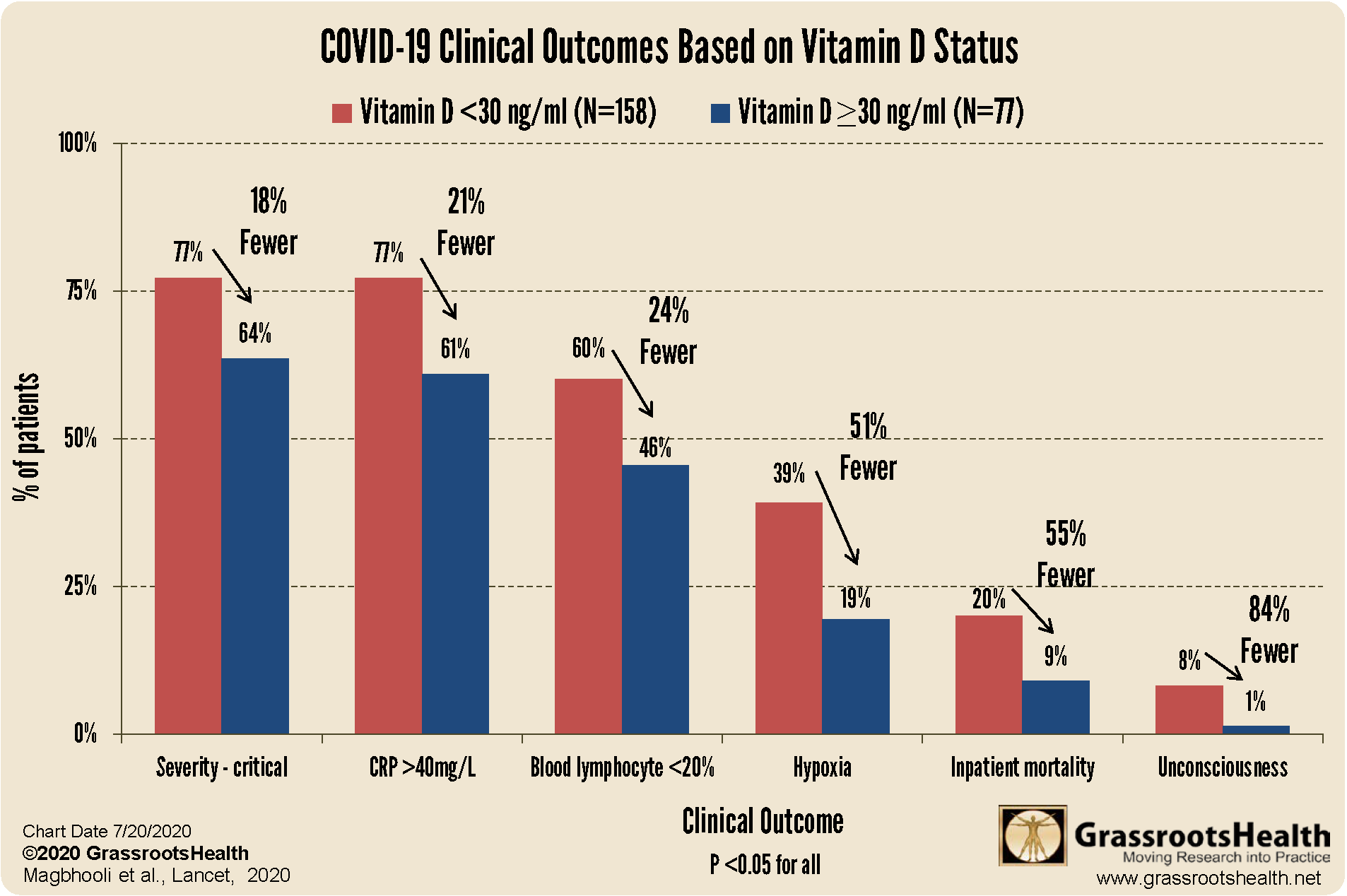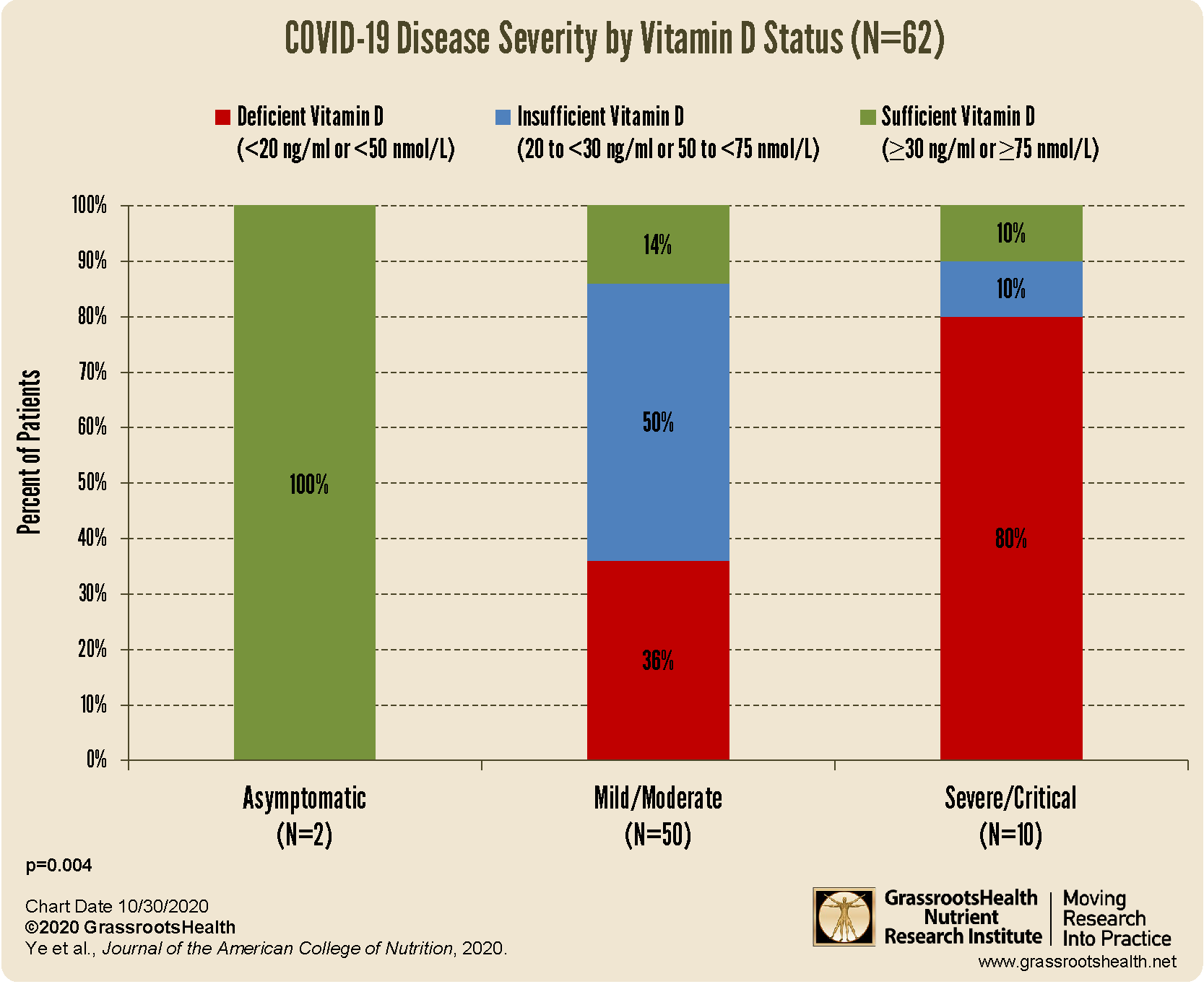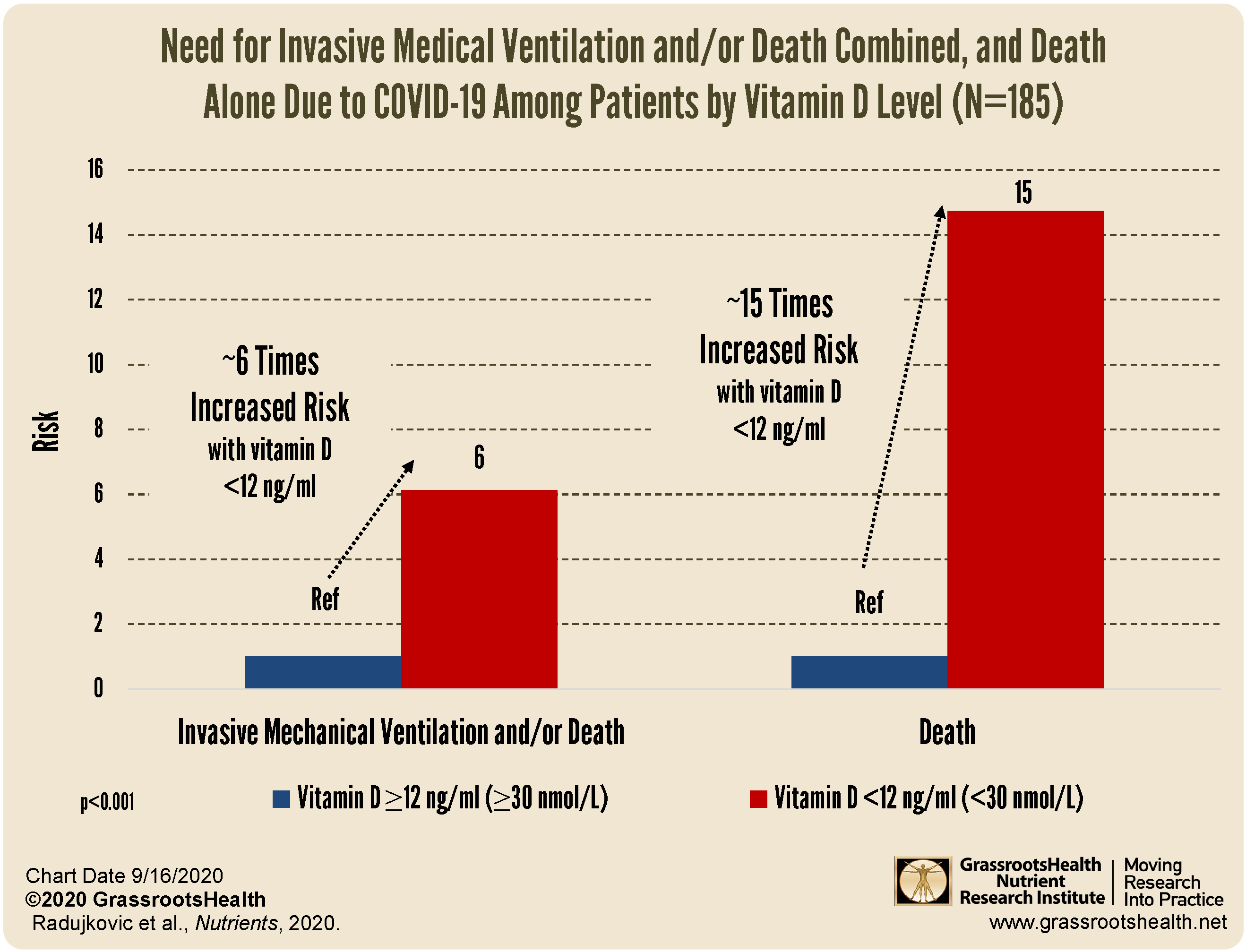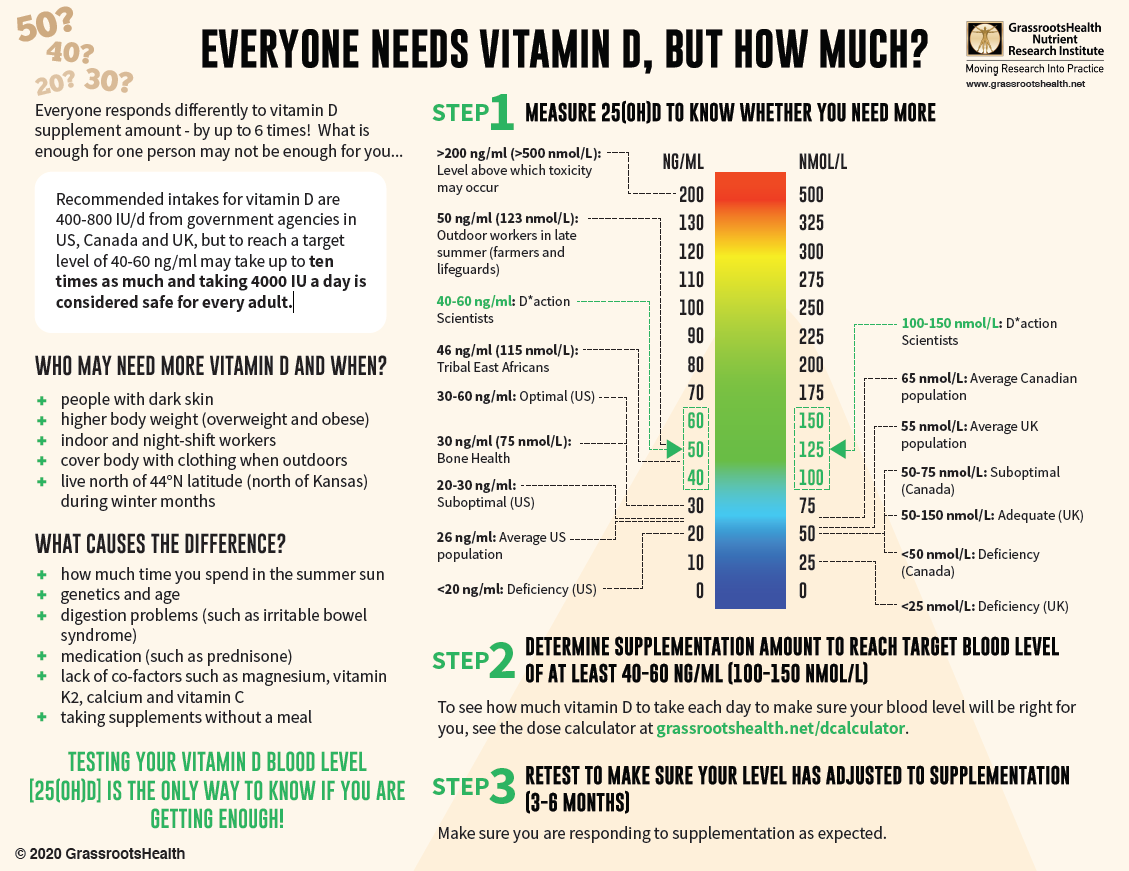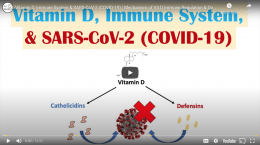Published on December 9, 2020
Vitamin D supplementation to achieve a serum level of 50 ng/ml improved conversion of SARS-CoV-2 positive to negative 3-fold by week 3
Vitamin D plays many important roles within the immune system, such as influencing the expression of genes involved in the immune response, regulating inflammation, and activating certain immune cells and molecules. The research demonstrating a link between vitamin D deficiency and COVID-19 severity is now quite strong. In fact, based on this evidence over 100 doctors and scientists are calling for widespread vitamin D use to reduce the risk and severity of COVID-19.
The paper reviewed below is yet another in a lengthy list that emphasizes the importance of vitamin D supplementation and attaining a target serum level of 40-60 ng/ml (100-150 nmol/L) in the fight against the global COVID-19 pandemic.
Supplementing with Vitamin D to Reach a Target Level of 50 ng/ml (125 nmol/L)
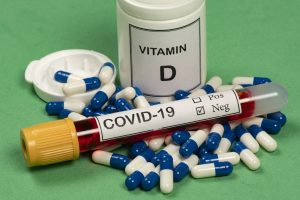 A study by Rastogi et al. randomized 40 patients who were hospitalized with a SARS-CoV-2 positive test and who were vitamin D deficient (with levels below 20 ng/ml or 50 nmol/L) into a study to determine if short-term, high-dose vitamin D supplementation with a target vitamin D level of 50 ng/ml (125 nmol/L) had an effect on SARS-CoV-2 test status. One group (n=16) received 60,000 IU of vitamin D per day for 7 days, while the other group (n=24) received a placebo. Vitamin D levels were tested again after 7 days; for those in the vitamin D group whose level was still below 50 ng/ml, daily vitamin D supplementation continued. All patients received the standard care for SARS-CoV-2 infection. Re-testing for SARS-CoV-2 was done on day 5, 7, 10, 14, 18 and 21. The primary outcome measured was the proportion of participants in each group who tested negative for SARS-CoV-2 before week 3.
A study by Rastogi et al. randomized 40 patients who were hospitalized with a SARS-CoV-2 positive test and who were vitamin D deficient (with levels below 20 ng/ml or 50 nmol/L) into a study to determine if short-term, high-dose vitamin D supplementation with a target vitamin D level of 50 ng/ml (125 nmol/L) had an effect on SARS-CoV-2 test status. One group (n=16) received 60,000 IU of vitamin D per day for 7 days, while the other group (n=24) received a placebo. Vitamin D levels were tested again after 7 days; for those in the vitamin D group whose level was still below 50 ng/ml, daily vitamin D supplementation continued. All patients received the standard care for SARS-CoV-2 infection. Re-testing for SARS-CoV-2 was done on day 5, 7, 10, 14, 18 and 21. The primary outcome measured was the proportion of participants in each group who tested negative for SARS-CoV-2 before week 3.
A Big Difference Seen with Vitamin D!
Vitamin D levels at the beginning of the study were very low for both groups: 8.6 ng/ml (21.5 nmol/L) for the vitamin D group and 9.5 ng/ml (23.7 nmol/L) for the placebo group. Among the 16 participants receiving vitamin D, 10 reached a vitamin D level of at least 50 ng/ml after 7 days of supplementing, with another two reaching 50 ng/ml by day 14.
By the end of 3 weeks, as illustrated in the chart above, ten of the 16 participants (63%) in the vitamin D group became SARS-CoV-2 negative, compared to only five of the 24 participants (21%) in the control group (p=0.018). Three times more participants in the vitamin D group converted from SARS-CoV-2 positive to negative after 3 weeks compared to those who did not receive any vitamin D. This strongly indicates that supplementing with vitamin D to reach a serum level of at least 50 ng/ml (125 nmol/L) among asymptomatic and mildly symptomatic SARS-CoV-2 positive individuals provides a much greater chance of testing negative compared to those who are vitamin D deficient.
Also important to note was the safety profile of vitamin D, with no indication of toxicity in the vitamin D group.
The Conclusion
As the authors state,
“oral vitamin D supplementation to augment 25(OH)D above 50 ng/ml helped to achieve SARS-CoV-2 RNA negativity in greater proportion of asymptomatic vitamin D deficient individuals with SARS-CoV-2 infection… supplementation may help in reducing transmission rates of the highly contagious SARS-CoV-2 infection.”
In other words, test now to find out your vitamin D level, and take the necessary steps to achieve your target level. You can use the vitamin D*calculator to determine what dose of vitamin D may be right for you, including a bolus dose option to raise levels more quickly.
Summary: Vitamin D & COVID-19
It’s TIME to start saving lives! If you can help PREVENT the majority of the death, it’s time! What’s it costing you/us not to take action NOW?
There is much published research that supports a clear link between vitamin D and COVID-19 showing that higher vitamin D levels are related to:
a decreased risk of testing positive for COVID-19
better clinical outcomes among patients with COVID-19
decreased risk of death due to COVID-19
Everyone needs vitamin D! Here’s how to tell how much you might need, and who may need more – people who are overweight or who have darker skin are among those at increased risk of deficiency.
Be sure to educate yourself on the benefits and importance of vitamin D for immune health, and take steps to ensure you and your loved ones are getting enough.
You can review all of the COVID-19 and immune health information we have shared on this page.
Ensure Vitamin D Levels of 40-60 ng/ml (100-150 nmol/L) for You, Your Children, Loved Ones
Correcting a vitamin D deficiency at any age and any time of life decrease potential disease severity and improve outcomes! Test your vitamin D level today, learn what steps to take to improve your level, and take action to achieve and maintain a vitamin D level of 40-60 ng/ml (100-150 nmol/L).
Using the GrassrootsHealth Custom Kit Builder, you can create a test kit that measures your status of vitamin D and other important nutrients (such as omega-3s, zinc and magnesium), as well as your CRP level to measure inflammation. Click here to build and order your test kit today – measure your status and take the steps necessary to improve them if needed; make an impact on your health today and for your future! When you know what your levels are, you can determine next steps to take and how much supplementation may be needed if you are not at your target levels.
Enroll now with the Full Immune Boost Panel (which includes tests for vitamin D, Omega-3 Index, magnesium, zinc, selenium, copper, and hsCRP), and get 10% off when you use coupon code BoostTen at checkout.


